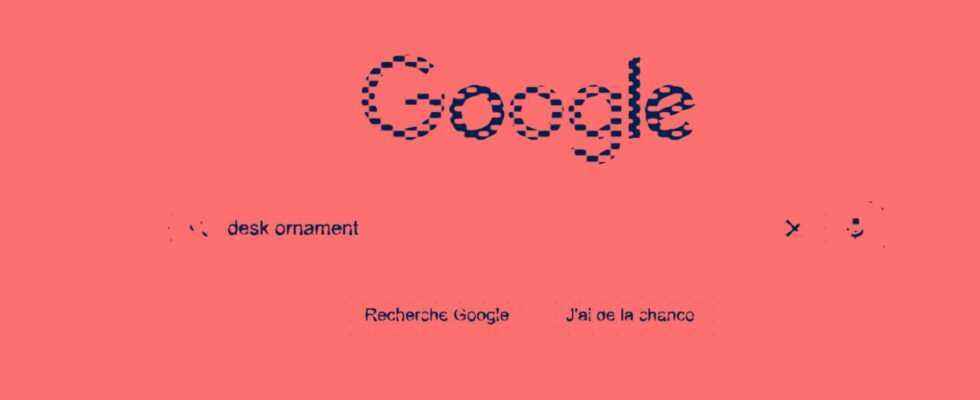On Google Images, a seemingly banal search highlights Nazi decorative objects.
Nazi decorative objects that appear on Google Images, including in France? This is the discovery made by Internet users on July 1, 2022, with a request which nevertheless turns out to be the most banal: “desk ornament”, or “desk decoration” in French. And yet, the first results are full of references to the Third Reich.
It was the writer Jason Pargin who publicized the case, taking up the findings of another Internet user, Scott Alexander. ” Question: Go to Google image search and search for ‘desk ornament’. Do you get a bunch of Nazi stuff in the first results? “, he asks. Other Internet users confirm, in reaction to his tweet, to come across these visuals.
We also obtained these images with the same query, including through Google France (google.fr) and not the international version of the search engine. It seems that only this request is affected: its French translation displays other visuals that have nothing to do with it. Even searching for the same terms, but in the plural, yields something else.
In the case of a much more oriented search, such as “Nazi decorative object”, images relating to the Third Reich also appear, but they are mainly taken from news articles dealing with matters around Nazism or to report cases concerning controversial auctions, whether in France or abroad.
We’ve reached out to Google France to see if this issue has been reported to them – we’ll update as soon as we get a response from the company. The most likely hypothesis seems to be a lack of filtering in the search engine results or a circumvention of the algorithm to bring these visuals up to the top of the ranking.
A first return from Danny Sullivanone of Google’s search managers, apologized and suggested the company’s next action: I apologize for that. We agree that this is not what most people would expect or desire, although unfortunately there are apparently a lot of such things being described using these terms (which is what we are comparing). We will see how to improve this situation. »
Google provides forms for requesting the removal of an image from search results and for reporting content that appears to be illegal. More generally, Google is required to respect the law of the countries in which it operates and the company indicates in its regulations that content that is offensive or incites hatred is restricted or prohibited, depending on the circumstances.
Recurring problems on various websites
In the past, Google, which has been confronted with the subject of neo-Nazi products, said, after removing the contentious content: “ We do not allow advertisements or products sold on our platforms that display offensive content or promote hatred. We enforce these policies vigorously and take action when we find they are being violated. »
Google is not the only company to have been singled out for this. In the past, Yahoo, Le Bon Coin and eBay have also been singled out. The case concerning Yahoo was at the time particularly publicized, because it raised several legal issues and in various jurisdictions. The subject of access to and sale of Nazi objects comes up regularly in the news.
In France, one of the key texts often put forward is article R645-1 of the Penal Code. This states that wearing or displaying in public a uniform, insignia or emblem reminiscent of those worn by members of Nazi Germany is liable to a fine of 1,500 euros, fines community service, confiscation of the items in question and various other penalties.
